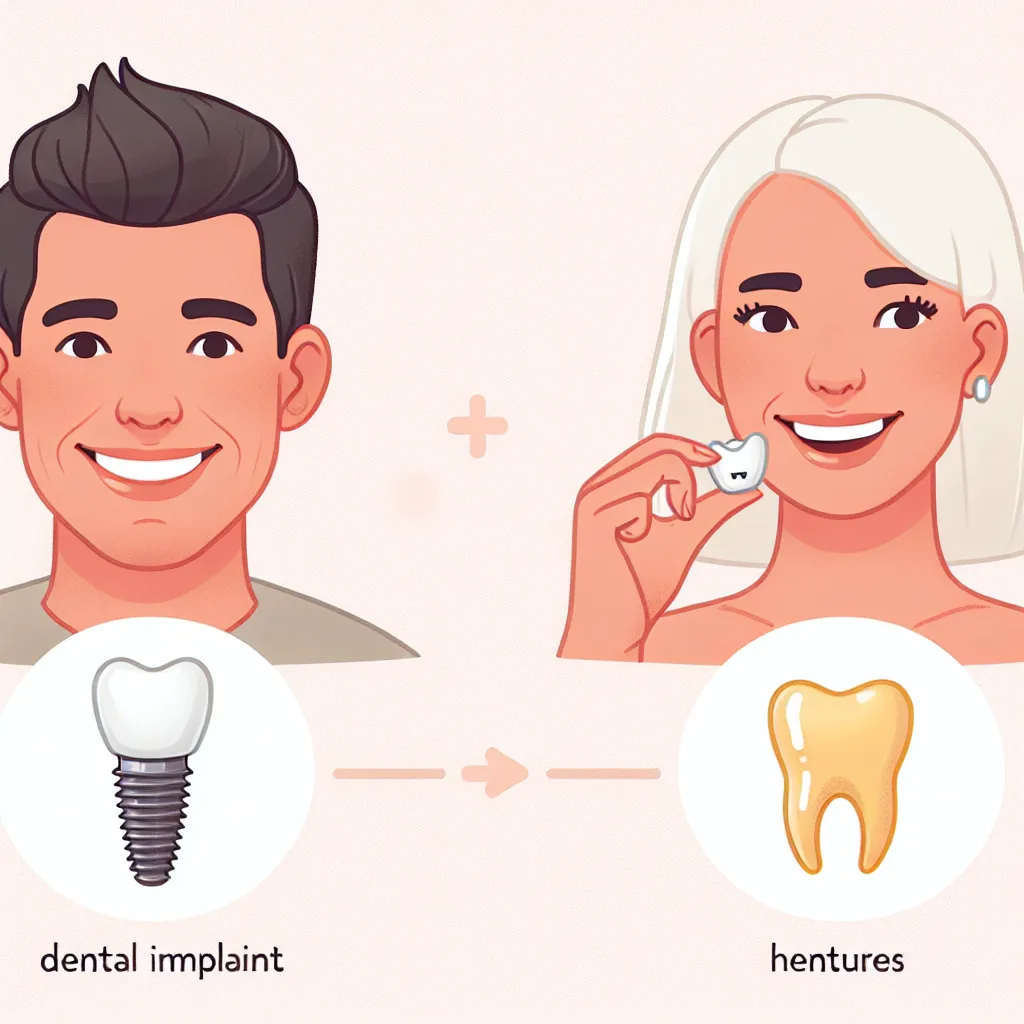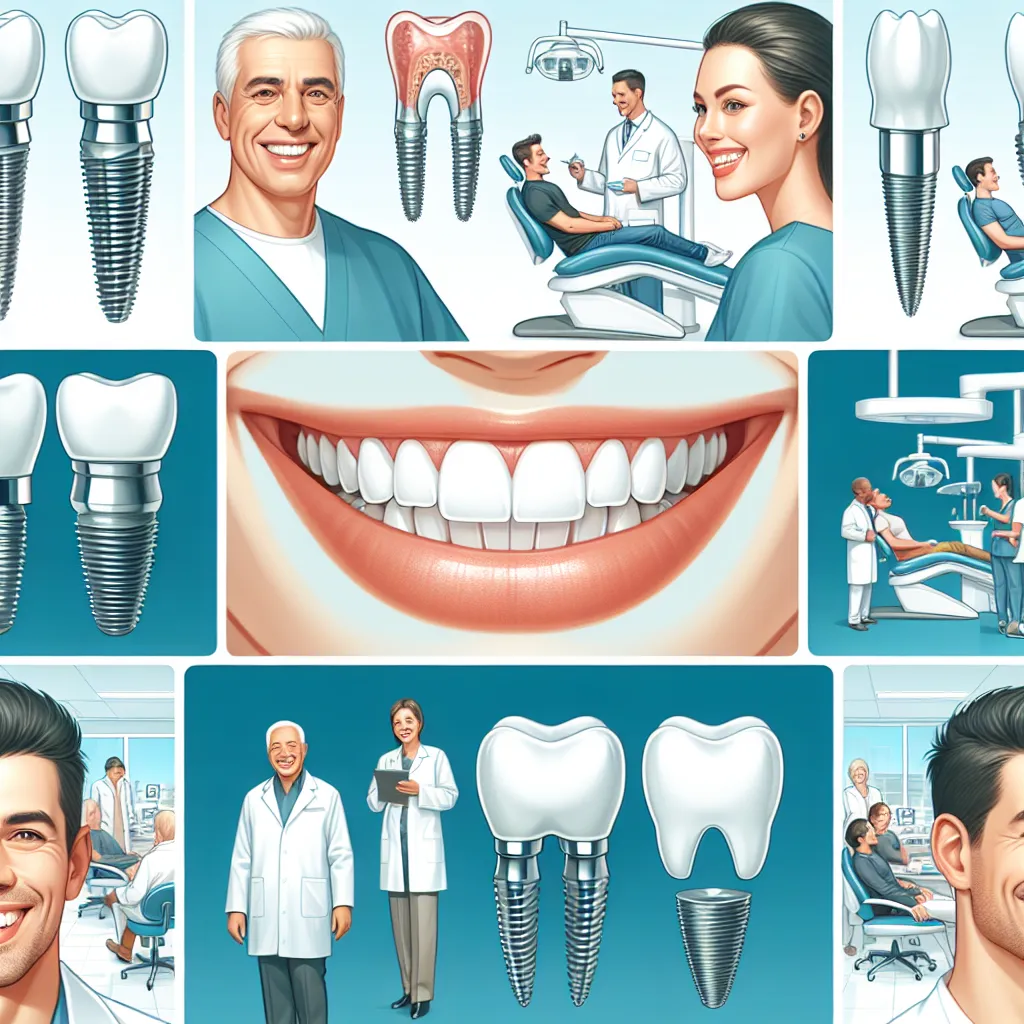Permanent dental implants are changing the way we think about tooth loss. Gone are the days when removable dentures were the only answer—now, permanent dental implants offer a solution that looks, feels, and acts like real teeth. For anyone tired of wobbly dentures or the embarrassment of gaps in their smile, permanent dental implants might be the best thing since sliced bread. But what are they, and why do so many people rave about them? Let’s break it down in plain english, with no fluff.
What Are Permanent Dental Implants?
Permanent dental implants are artificial tooth roots, usually made from titanium, that get surgically placed into the jawbone. Once healed, they provide a solid base for replacement teeth—crowns, bridges, or even full arches. Unlike old-school dentures, they stay put. They’re as close as we can get to growing new teeth.
Why Do Permanent Dental Implants Matter?
Missing teeth can take a toll on how we chew, talk, and feel about our appearance. Permanent dental implants restore not just the look but the function of real teeth. They can prevent bone loss in the jaw, keep your face from sagging, and let you eat steak or apples without worry.
Key Benefits of Permanent Dental Implants
Let’s get straight to the good stuff—what makes permanent dental implants so popular?
1. Natural Look and Feel
Permanent dental implants mimic the appearance, strength, and function of natural teeth. Most people can’t spot the difference.
2. No Slipping or Clicking
Unlike removable dentures that can slip at the worst moments, implants are fixed in place. Laugh, talk, and eat without fear.
3. Jawbone Health
Implants stimulate the jawbone, helping prevent bone shrinkage. This keeps the shape of your face more youthful over time.
4. Long Lifespan
With good care, permanent dental implants can last decades—or even a lifetime. That’s a lot less hassle and replacement compared to bridges or dentures.
5. Better Quality of Life
Eat what you want, speak clearly, and smile confidently. It’s a big upgrade from removable solutions, especially for those who’ve struggled for years.
Quick Comparison Table
| Feature | Permanent Implants | Dentures | Bridges |
|---|---|---|---|
| Fixed in place | Yes | No | Yes |
| Prevent jawbone loss | Yes | No | No |
| Lifespan | 20+ years | 5-10 years | 10-15 years |
| Looks/feels natural | Yes | Sometimes | Usually |
| Diet restrictions | Few | Many | Some |
Are There Any Drawbacks?
Nothing’s perfect, right? Permanent dental implants do have some downsides.
1. Upfront Cost
Getting permanent dental implants costs more at first. The price can range from $3,000 to $5,000 for a single implant, and full mouth solutions can be much higher.
2. Surgery Required
Implant placement is a minor surgery. There’s healing involved, and not everyone’s a candidate (think: not enough bone, certain health conditions).
3. Not Instant
The process takes time. After placement, it can take several months for the bone to fuse with the implant—a process called osseointegration. Patience required!
4. Possible Complications
Implants have a high success rate, but problems can still happen—like infection, loose implants, or nerve irritation. The risk is low, especially with a skilled dentist, but it’s not zero.
Who’s a Good Candidate for Permanent Dental Implants?
- Healthy gums and jawbone: You need enough bone to hold the implant.
- Non-smokers: Smoking slows healing and can increase failure rates.
- No uncontrolled medical conditions: Diabetes, immune issues, and certain medications may get in the way.
- Commitment to oral hygiene: You’ve gotta brush and floss, just like with real teeth.
Not Sure You Qualify? Here’s How to Know
| Criteria | Ideal Candidate | Needs Extra Steps |
|---|---|---|
| Jawbone density | Strong | Bone graft may help |
| Gum health | Healthy | Treat gum disease |
| Smoking | No | Quit if possible |
| Chronic illness | None | Discuss with doc |
Common Use Cases for Permanent Dental Implants
Permanent dental implants aren’t just for one missing tooth. Here’s where they really shine:
1. Single Tooth Replacement
One implant, one crown. No grinding down healthy teeth next door.
2. Multiple Teeth
Bridges can be supported by two or more implants, skipping the need to anchor on natural teeth.
3. Full Arch Replacement (All-on-4 and Similar Solutions)
Four to six implants can support an entire arch of teeth—upper or lower. These teeth don’t come out at night, and you can eat just about anything.
4. Stabilizing Loose Dentures
Tired of dentures flying out while talking? Implants can anchor dentures so they stay put.
Tips for Choosing Permanent Dental Implants
The decision to get permanent dental implants is a big one. Here’s how to make it easier:
1. Check Your Dentist’s Credentials
Ask how many implant procedures they’ve done. Experience matters!
2. Get a Detailed Treatment Plan
A good dentist lays it all out: X-rays, scans, timelines, costs, and steps.
3. Understand All Costs
Ask about extractions, bone grafts, and the type of crown or bridge. Get it all in writing.
4. Ask About Materials
Most implants are titanium, but some use ceramics. Discuss options if you have metal sensitivities.
5. Plan for Recovery
You’ll need a few days off for the initial procedure. Healing time varies, so stock up on soft foods and comfy pillows.
Real-World Success Stories
Story 1: “Back to Corn-on-the-Cob”
A retired teacher, missing her lower molars for years, finally opted for permanent dental implants. She says, “I ate corn-on-the-cob at a family BBQ last summer for the first time in a decade. I felt like a kid again!”
Story 2: “No More Glue”
A 40-year-old construction worker struggled with loose dentures at work. After a full-arch implant solution, he shared, “No more glue, no more embarassment. I can eat steak with the crew and never worry about my teeth coming loose.”
Story 3: “Confidence Rebooted”
A single mom lost a front tooth in a biking accident. After her implant healed, her dentist matched the crown so perfectly that her friends couldn’t tell. “I smile in photos again. I’d do it all over, even with the wait.”
Most-Asked Questions About Permanent Dental Implants
How long do permanent dental implants actually last?
Permanent dental implants can last 20 years or more—sometimes a lifetime—if you brush, floss, and see the dentist regularly.
Do permanent dental implants hurt?
The surgery itself is numbed, so you won’t feel pain. Afterward, some soreness is normal, like after any dental work. Most people say it’s less painful than they expected.
Can anyone get permanent dental implants?
Not everyone. You need enough healthy bone, good overall health, and commitment to aftercare. Some medical conditions or medications can make implants riskier.
Are permanent dental implants safe?
Yes, implants are considered very safe, with success rates around 95%. Complications are rare but possible, especially if you smoke or skip cleanings.
What do permanent dental implants cost?
The cost varies—about $3,000–$5,000 for a single implant, and $15,000–$30,000 (or more) for full arches. Insurance may cover part of the cost in some cases.
Will my new teeth look natural?
Absolutely. Dentists customize the crowns or bridges to match your other teeth in color and shape. Most people can’t tell the difference.
How do I care for permanent dental implants?
Just like natural teeth—brush twice a day, floss daily, and see your dentist every six months. Skip the hard candies and don’t use your teeth as tools!
Permanent dental implants have flipped the script on tooth replacement. They offer stability, confidence, and a chance to live—and eat—fully again. While they’re an investment, the benefits can last a lifetime, making them a game-changer for those ready to reclaim their smile.
Are Permanent Dental Implants
Permanent dental implants are a long-lasting solution for missing teeth, designed to mimic natural roots with a titanium post fused into the jawbone. They provide stability, durability, and a natural look, lasting over 20 years with proper care. Unlike dentures, they don’t slip or cause discomfort, and they help preserve jawbone health.
How Do They Compare?
| Aspect | Permanent Dental Implants | Dentures |
|---|---|---|
| Longevity | 20+ years, lifetime | 5-10 years |
| Stability | Fixed, no slipping | Move around, messy |
| Bone health | Stimulates growth | Causes bone loss |
Key Benefits: No slipping, preserves bone, natural appearance.
Drawbacks: Higher upfront cost, requires surgery.
Ready for a confident smile? Contact us today to learn how permanent dental implants can transform your life!
Frequently Asked Questions About Permanent Dental Implants
How long do permanent dental implants last?
With proper care, permanent dental implants can last 20 years or more, sometimes even a lifetime.
Do permanent dental implants hurt during the procedure?
The surgery is performed under local anesthesia, so you shouldn’t feel pain during the procedure. Some mild discomfort afterward is normal.
Who is a good candidate for permanent dental implants?
Candidates should have enough healthy jawbone, good overall health, and a commitment to oral hygiene. Certain medical conditions or smoking may affect eligibility.






